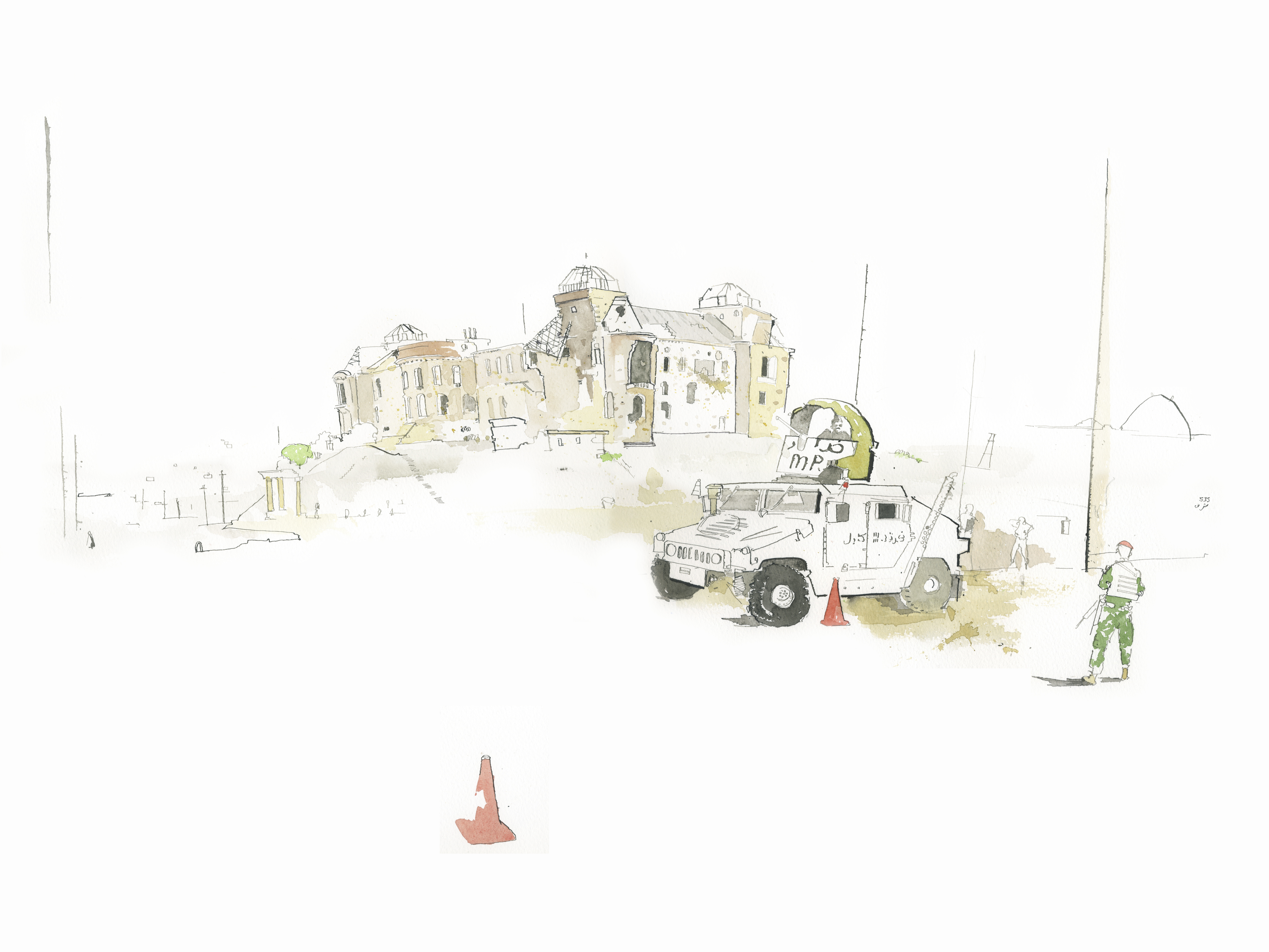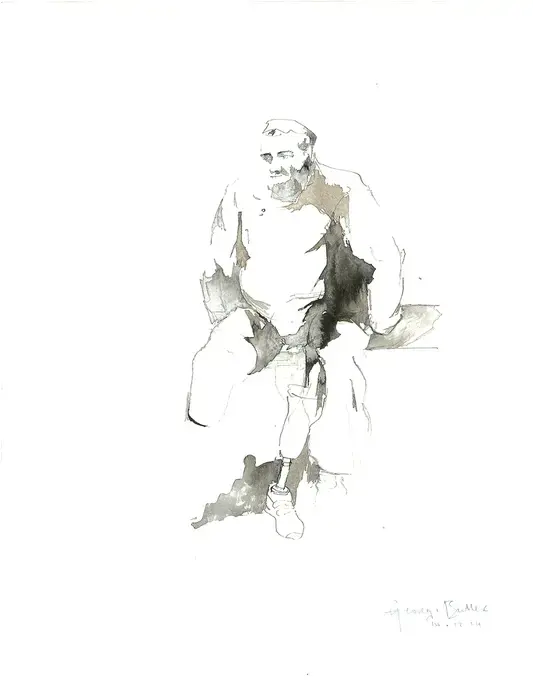George Butler first went to Afghanistan as an art student. A guest with the British Army, Butler didn't see the country beyond the military compounds.
Eight years later, Butler was back with support from the Imperial War Museum and the Pulitzer Center on Crisis Reporting to document everyday life in the country.
'I was aware that that the things I had read in the newspapers are only a very small part of the picture. I wanted to capture things that aren't news, but are still facts about the country,' says Butler.
Butler works with ink and a dip pen. 'I try to stand there as long as possible. In Kabul, it was 45 minutes to an hour at most,' he says. Security concerns kept Butler on the move in the capital, but he could take his time in rural areas.
'Kabul can feel a bit like a concrete and barbed wire maze,' he says. In Koh-e Takah Tu, west from Kabul, Butler freely walked and talked with the locals.
'When I went into a classroom the girls would scramble for their veils, but after a while they relaxed,' says Butler. He visited schools run by a local charity that has educated around 10,000 children in the area. 'It could have been a classroom anywhere in the world,' he adds.
'There wasn't a single time in three weeks where there wasn't anything but a friendly reaction,' says Butler. 'People came over and watched what I was doing over my shoulder.'
Sometimes people were too eager to help. 'I was drawing a boy on Bird Street in Kabul. The streets there are named after what is sold on them,' says Butler. On the narrow Bird Street, Kabulis can choose a chicken for dinner, or pick up a pet budgie. Butler's subject held two birds, but when he shifted the birds about, locals insisted that the boy return to his original pose.
While drawing Kabul's Shah-e-Doh Shamshira mosque, a man came over to offer Butler encouragement. 'He said that he was an artist himself, and he was really happy to see someone else working.'
In the western city of Herat, Butler met Alberto Cairo, an Italian philanthropist who has lived in the country for over 30 years. Cairo specialises in helping disabled Afghans, and helped organise wheelchair basketball teams in the country. 'People are passionate about the sport, and it's phenomenally fast,' says Butler.
'The charity looks after anyone who comes through the door in need of help with a prosthesis,' says Butler. War wounds account for only ten to 12 per cent of limb disablements. Today, polio and accidents account for most limb loss in Afghanistan.
Butler would like to return to Afghanistan, although he acknowledges it is not the easiest country to move about in as a foreigner.
That said, he feels that there are some things that, for an artist, would be easier back in Afghanistan: 'I'd like to have an exhibition back in Kabul. It would probably be easier than putting one on in London.'












